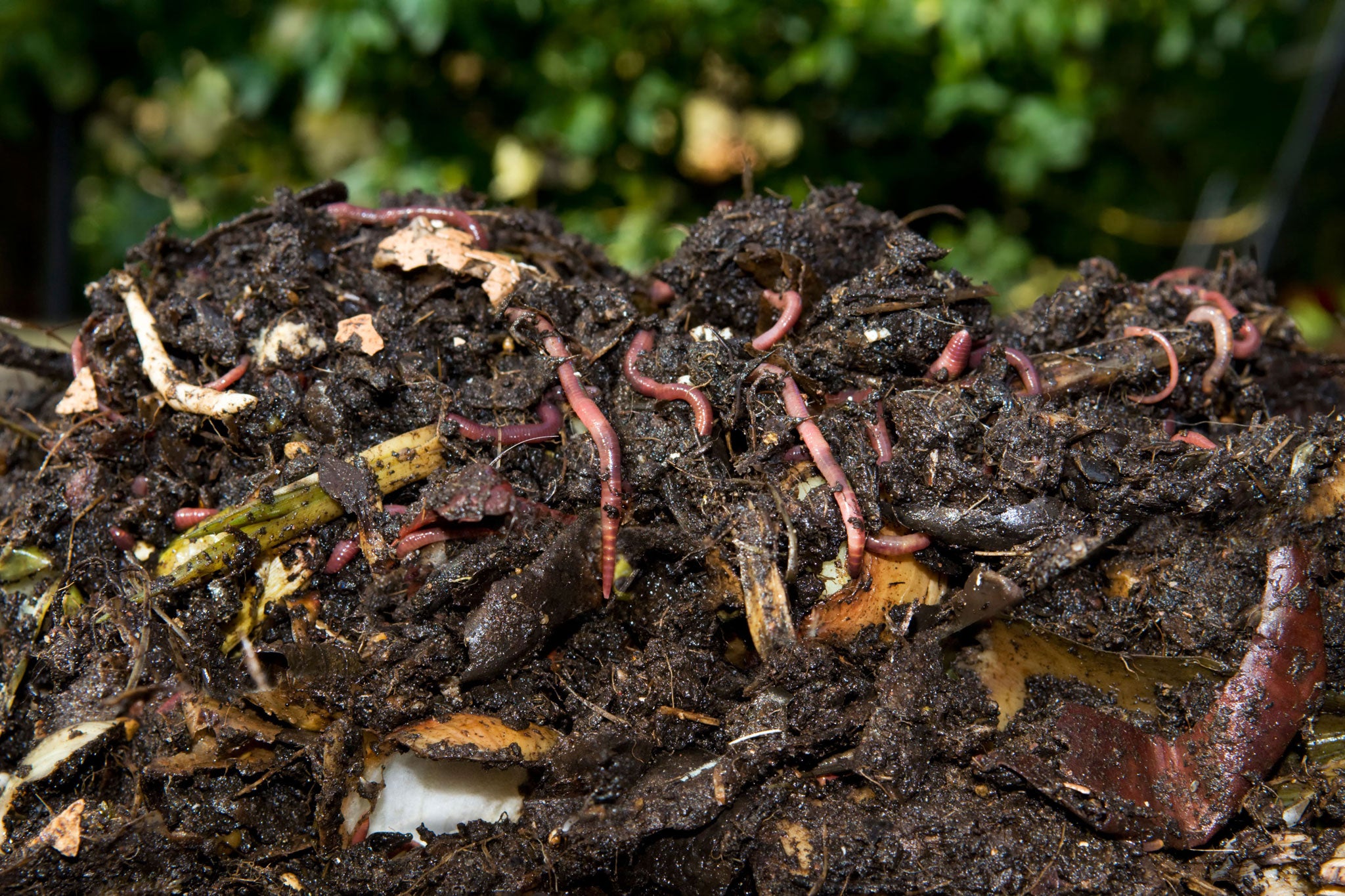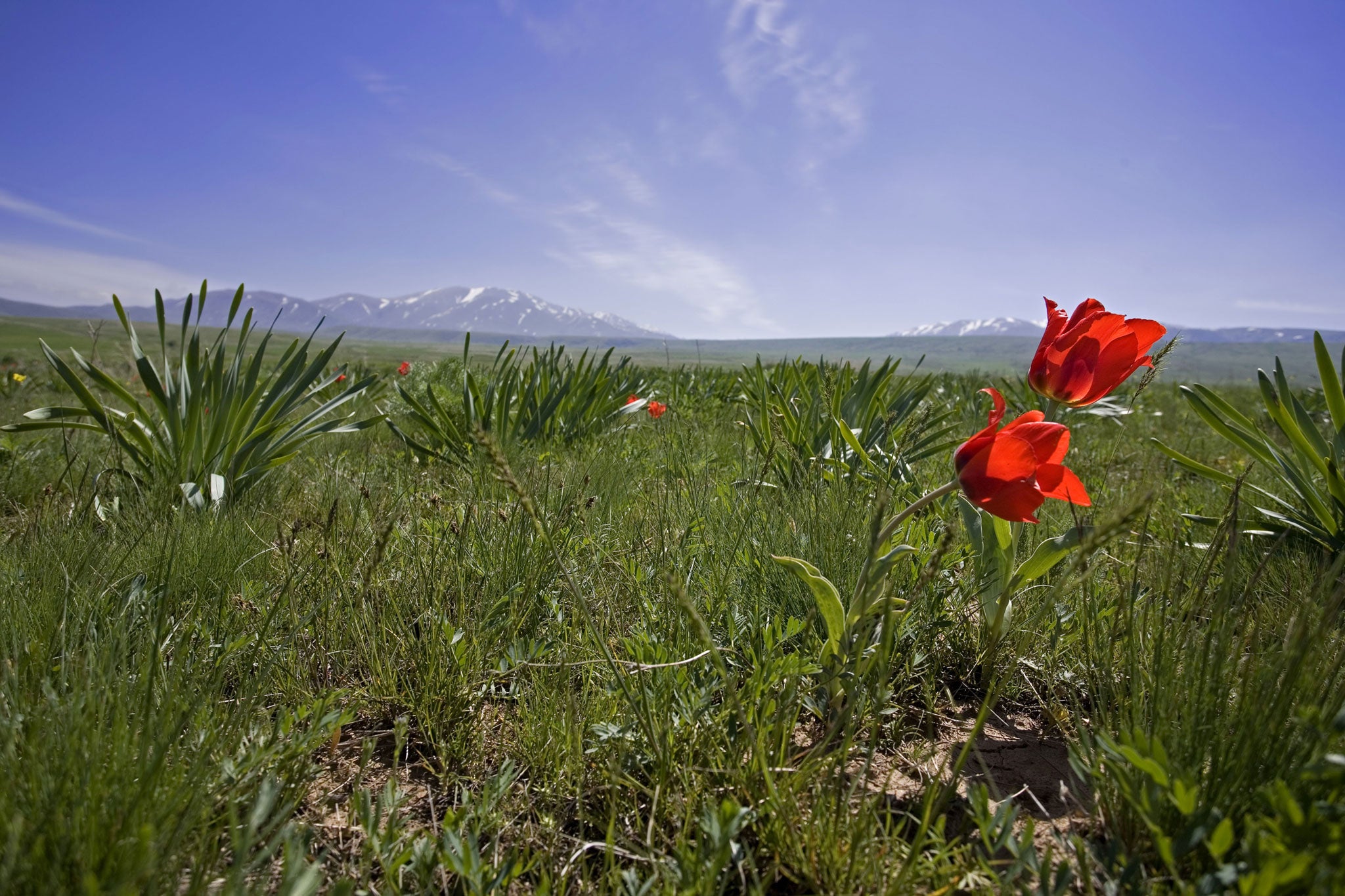Beginner's pluck: Follow our expert's choice tips and you'll be mulching in no time

Round our way, amateur versions of Gardeners' Question Time are a popular way of raising money for charity and from time to time I get to sit on the panel. "What tips would you give to a new gardener?" is a favourite question and more interesting than the usual queries about scrofulous bits of greenery. Answers depend very much on the panellist's own interests. And character.
Well, the first tip I'd give is not to suppose that if you follow rules you will get results. General principles are what you need to grasp. In this country, seasons are unpredictable and that makes fixed dates and fixed ways of doing things meaningless. Your trawl through the internet may tell you that March is the time to sow broad beans. But if the soil in March is still waterlogged and freezing cold, then it isn't. A seed needs much what we need: a comfortable bed.
All gardeners start with a huge advantage, which is that plants will do their best to grow no matter what crass obstacles we put in their way. But we can help them survive by understanding something of the way they live in the wild. The cradle of all tulips, for instance, is Central Asia, particularly the Tian Shan mountains where the flowers push through the shale-strewn slopes as soon as the snow begins to melt. Before the searing heat of summer, they disappear underground again, but it's the heat that initiates the flower bud for the following season.
So in our gardens, there are two things that tulips are looking for above all else: ground that drains as fast as a mountain slope and a good baking in summer. We can at least provide good drainage, by using masses of grit when we plant. Heat in summer is beyond our giving, which is why tulips do not always come back into flower after their first fine fling.
I'd also suggest that new gardeners take time to understand their soil. All soils are made from a mixture of bits of rock, water and organic matter such as rotted leaves, but they differ enormously in the proportions of one to the other. Light, sandy soils are made from relatively large bits of rock, heavy clay soils from small particles. On heavy soils, plant roots keep bumping their noses on the underground equivalent of brick walls because there is not enough air in the ground. On light soils, there may be too much air and the fine, hairy rootlets that absorb nutrients are unable to clutch at what they need.
The most rewarding way to garden is to go with what you've got. If you have light, sandy soil, think Mediterranean – sage, rosemary, lavender, iris, cistus. If you garden on clay, choose crab apples, elder, lilac, monkshood, campanula, hosta and lungwort.
There's another distinction a new gardener needs to understand: the difference between an acid soil and an alkaline one. Acid and alkaline are terms that apply to the pH (the potential of hydrogen) in the soil. The pH scale runs from one to 14 with neutral somewhere in the middle. Most vegetables grow best in slightly alkaline soil. Shrubs such as acers, camellias, pieris and rhododendron do best on acid soil, between 4.5 and 6 on the pH scale. I'd say accept what you have got. Nothing looks more sad in a garden than a miserable rhododendron, gasping in an alkaline soil for its fix of acid.

I'd also advise a new gardener to mulch, mulch, mulch. Anything bulky and organic will do: mushroom compost, spent hops, homemade compost, farmyard manure. The easy way is to spread mulch thickly over the surface of the soil, leaving earthworms to drag it underground. Mulch opens up heavy soils and adds bulk to light ones.
In natural habitats, nature replenishes the soil with gifts of dying vegetation and animal droppings, which are gradually pulled down into the earth by worms and insects. We need to compensate for the fact that we whisk away dead leaves as though they were a problem rather than a prize.
Another tip I'd hand over is to buy a garden fork before you buy a spade. Digging may be necessary on heavy ground that hasn't been cultivated before (like a new allotment). You might also need to dig over compacted ground, where, for instance, you are changing the route of a path. But generally, the less you disturb soil, the better. You don't have to take out mighty trenches to plant potatoes. Stretch a line to keep you straight and plant them along the line using a trowel.
Which brings me to another tip. If you are new to the business of gardening, stick at first to the things that are most likely to succeed. Potatoes are easy. You can grow a crop in an old plastic compost bag (make it a big one). Turn the top of the sack down, so it is about half height. Poke a few holes in the bottom. Fill the half-sack with compost (your own will be the cheapest option) and plant the potato in the middle, 10-12cm deep. Water the sack. As the plant grows, earth it up by unrolling a bit of the sack and adding more compost round the stem. Waxy 'Charlotte' is the potato I'd choose, a second early rather than a first, but fabulously flavoured. Second earlies should be ready to eat within 16-17 weeks.
And a final tip. Do the job you most feel like doing. Gardening is not a penance. It's supposed to be a pleasure. Certain things have to happen, like sowing seeds if you want a crop, or tying in a rose, if you want to continue using a particular path, but one day you will wake up in the right mood to make that thing happen. And you'll make a better job of it than if you force yourself to do it when you are not in the groove. Conditions need to be right, too, of course. It's madness to try and tie in a rose when the wind is blowing. And the job is more easily done in winter, when the branches are bare, than in summer when you can't see stems for foliage. Allow the plants to teach you a few lessons. They will, if only you listen.
Anna Pavord is appearing at the Independent Bath Literature Festival at 1pm on 7 March. Tickets £7.50; bathfestivals.org.uk, 01225 463362
Join our commenting forum
Join thought-provoking conversations, follow other Independent readers and see their replies
Comments
Bookmark popover
Removed from bookmarks